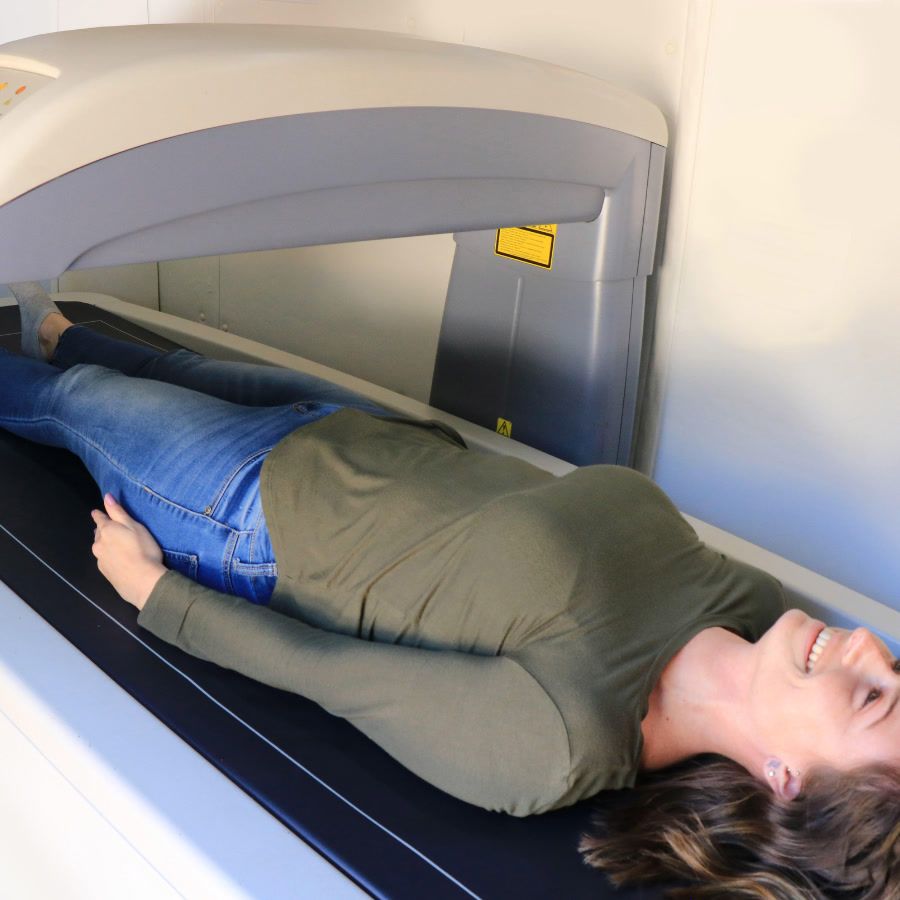Does Sweating Help You Lose Weight?

Does Sweating Help You Lose Weight?
Sweating is a natural bodily response that occurs when our body temperature rises. Whether it's due to physical exertion, exposure to hot weather, or even spicy foods, sweating plays a vital role in keeping our bodies cool and maintaining optimal internal temperatures.
Get weekly updates.
Understanding the Science of Sweating
Before we delve into the connection between sweating and weight loss, it's important to grasp the science behind sweating. Our skin is covered with millions of sweat glands, which are responsible for producing sweat. These sweat glands are of two types - eccrine and apocrine glands.
Eccrine glands are the most numerous type and can be found all over our body. They secrete watery sweat that consists primarily of water, salt, and small amounts of other electrolytes. These glands are particularly abundant on the palms of our hands, the soles of our feet, and the forehead. In fact, the soles of our feet alone contain about 250,000 sweat glands!
Apocrine glands, on the other hand, are mainly located in areas with dense hair follicles, such as the armpits and groin. These glands produce sweat that contains more proteins and lipids, resulting in a thicker, odor-causing sweat. The bacteria on our skin break down these proteins and lipids, leading to the characteristic body odor associated with sweating.
The Role of Sweat Glands
The sweat glands play a crucial role in maintaining our body's overall health and well-being. Besides regulating body temperature, sweating also helps to eliminate toxins and waste products from our body. Through the process of sweating, our body can excrete substances like urea, ammonia, and lactic acid, which are byproducts of various metabolic processes.
Additionally, sweat contains antimicrobial peptides that can help protect our skin from harmful bacteria and fungi. These peptides have been found to have antimicrobial, antifungal, and even antiviral properties, making sweating an important part of our body's defense mechanism.
Interestingly, the composition of sweat can vary depending on various factors such as age, gender, diet, and overall health. For example, individuals who consume a high-salt diet may have sweat that is saltier than those who consume a low-salt diet. Similarly, certain medical conditions can alter the composition of sweat, leading to changes in its odor or electrolyte content.
The Process of Thermoregulation
Sweating is an essential part of our body's thermoregulation mechanism. When our internal body temperature rises, whether due to exercise or external factors, the hypothalamus in our brain signals the sweat glands to produce sweat. As the sweat on our skin evaporates, it dissipates heat, cooling down our body temperature.
During intense physical activity or exposure to high temperatures, our body can produce copious amounts of sweat to help regulate our body temperature. This is why we often feel drenched in sweat after a vigorous workout or on a hot summer day. However, it's important to note that excessive sweating, known as hyperhidrosis, can also be a medical condition that requires proper diagnosis and treatment.
In addition to cooling our body, sweating also plays a role in maintaining the balance of electrolytes in our system. Electrolytes such as sodium, potassium, and calcium are essential for various bodily functions, including nerve and muscle function. Sweating helps to regulate the levels of these electrolytes by excreting them along with the sweat.
Overall, sweating is a fascinating and intricate process that goes beyond simply cooling down our body. It involves the coordination of various glands, hormones, and physiological mechanisms to maintain our body's equilibrium. So the next time you break a sweat, remember that it's not just a sign of physical exertion, but a complex biological process at work!
Sweating and Weight Loss: The Connection
While sweating plays a crucial role in regulating body temperature, it does not directly lead to weight loss. Many people mistake the loss of water weight through sweating as fat loss, but this is not the case.
The Impact of Sweat on Body Fat
Sweating does not mobilize or break down fat cells. When we sweat, the primary component lost is water, which our body quickly replenishes once we rehydrate. While sweating can contribute to minor fluctuations in body weight, the effects are temporary and not indicative of true fat loss.
Water Weight vs Fat Loss
It's essential to differentiate between water weight and fat loss. Losing water weight can happen rapidly, especially during intense workouts. However, it is crucial to remember that this is a temporary loss and not an accurate reflection of fat loss.
When we lose weight, we aim to reduce body fat, not simply shed water weight. Sustainable weight loss occurs when we create a calorie deficit through a combination of diet and exercise, leading to the breakdown of fat stores.
Factors Influencing Sweat Production
Several factors influence an individual's sweat production, making it important to understand that sweat rates can vary widely among different people.
Genetics and Sweating
Genetics plays a significant role in determining how much we sweat. Some individuals naturally sweat more than others due to variations in the number and activity of sweat glands. While genetics can't be changed, understanding our body's tendencies can help us navigate our sweat levels during exercise or in hot environments.
Fitness Level and Sweat Rate
A person's fitness level can also impact their sweat rate. Regular physical exercise leads to increased sweating efficiency. As individuals become more physically fit, their bodies adapt to dissipate heat more effectively, resulting in increased sweat production during exercise.
The Role of Exercise in Sweating and Weight Loss
Exercise not only makes us sweat but also plays a critical role in weight loss. While the act of sweating itself does not lead to fat loss, engaging in regular exercise can contribute to overall weight management and body composition changes.
Different Types of Workouts and Sweat Production
The type and intensity of exercise can influence sweat production. High-intensity workouts or activities that engage large muscle groups generally result in increased sweating. However, it's important to note that sweating alone is not a reliable indicator of the effectiveness of an exercise routine when it comes to weight loss.
The Importance of Consistent Physical Activity
Consistency is key when it comes to incorporating exercise into a weight loss journey. Regular physical activity helps create a calorie deficit, which, when combined with a balanced diet, can result in sustainable weight loss. Sweat production during exercise is just one piece of the puzzle; long-term commitment to a healthy lifestyle is crucial for achieving and maintaining weight loss goals.
Misconceptions About Sweating and Weight Loss
There are many misconceptions surrounding sweating and its impact on weight loss. It's essential to separate fact from fiction to make informed decisions about our health and fitness.
Debunking the Sweat Suit Myth
Wearing a sweat suit or using saunas and steam rooms may lead to significant water weight loss through excessive sweating. However, this is not a healthy or sustainable approach to weight loss. The lost weight is quickly regained once fluids are replenished, and it does not reflect true fat loss.
The Truth About Sweat Bands and Weight Loss
Sweat bands or waist trimmers claim to enhance fat burning and weight loss by increasing sweat production in targeted areas. These claims are unfounded. While these garments may cause temporary water weight loss, they do not target and reduce body fat in specific areas.
To truly assess your body composition changes and track progress over time, consider utilizing BodySpec's affordable DEXA scans. These scans provide detailed insights into body fat levels, muscle mass, and bone health, offering a comprehensive understanding of your body composition. With this information, you can make informed decisions about your fitness journey and monitor changes accurately.



